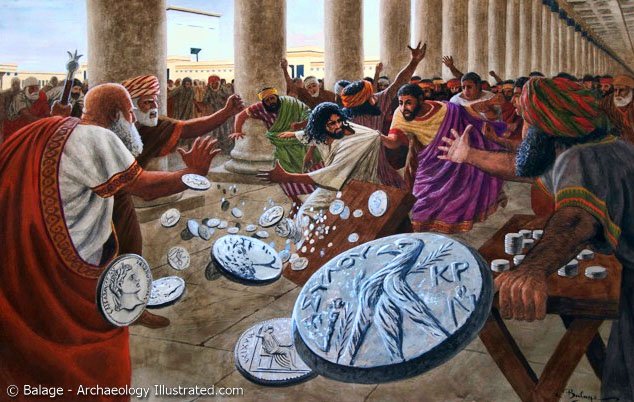An Introduction to the Book of James
Authorship and Background
The Epistle of James begins with a personal identification:
“James, a bondservant of God and of the Lord Jesus Christ, to the twelve tribes which are scattered abroad: Greetings” (James 1:1, NKJV).
This James is not James the son of Zebedee, one of the original Twelve Apostles and brother to John (Mark 3:17), but rather James, the half-brother of Jesus (Galatians 1:19; Matthew 13:55). Despite initially doubting Jesus (John 7:5), James later became a pillar of the Church in Jerusalem (Galatians 2:9) after witnessing the resurrected Christ (1 Corinthians 15:7). His leadership is evident in Acts 15 during the Jerusalem Council.
As Peter moved into broader missionary work (Acts 12:17), James took on a leading pastoral role, shepherding Jewish believers in Jerusalem—many of whom were facing persecution, famine (Acts 11:28–30), and social ostracization. This context gives meaning to James’s repeated exhortations to endure trials and live out faith authentically.
Central Theme of the Epistle
Theologically, the Book of James is a call to authentic, active faith—a faith that is not mere profession but evidenced by obedience, love, and good works. As James boldly states:
“Thus also faith by itself, if it does not have works, is dead” (James 2:17, NKJV).
While Paul emphasized justification by faith apart from the works of the Law (Romans 3:28), James complements this by showing that true saving faith necessarily produces works (James 2:18, 26). This epistle answers the question, “What does genuine faith look like in everyday life?”
Though written to the “twelve tribes scattered abroad” (James 1:1)—referring to Jewish Christians in the Diaspora—its message applies to all believers across time.
Six Major Themes in the Book of James
1. True Faith Endures Trials and Temptations (James 1:2–18)
James opens by exhorting believers to “count it all joy when you fall into various trials” (v. 2), because testing produces patience and spiritual maturity (v. 3–4).
He also distinguishes trials from temptations:
“Let no one say when he is tempted, ‘I am tempted by God’; for God cannot be tempted by evil, nor does He Himself tempt anyone” (James 1:13, NKJV).
Temptation arises from internal desires (v. 14–15), not from God, who instead gives “every good gift and every perfect gift” (v. 17).
2. True Faith Seeks and Reflects Godly Wisdom (James 1:5–8; 3:13–18)
Believers are encouraged to ask God for wisdom with unwavering faith (1:5–6).
Godly wisdom, James teaches, is not marked by arrogance or conflict but is:
“…first pure, then peaceable, gentle, willing to yield, full of mercy and good fruits…” (James 3:17, NKJV).
This contrasts with worldly wisdom, which is “earthly, sensual, demonic” (James 3:15) and leads to envy and strife.
3. True Faith Shows No Partiality (James 2:1–13; 5:1–6)
James condemns favoritism within the Church:
“…if you show partiality, you commit sin, and are convicted by the law as transgressors” (James 2:9, NKJV).
He emphasizes that God has chosen the poor in the eyes of the world to be rich in faith (2:5), and warns the wealthy who exploit the poor (5:1–6) of impending judgment.
This teaching echoes the Gospel’s message of equality and dignity before God (Galatians 3:28).
4. True Faith Is Proved by Action (James 1:19–2:26)
James urges believers to be “doers of the word, and not hearers only” (James 1:22, NKJV), and to control their tongues (1:26; cf. James 3:1–12).
Caring for “orphans and widows in their trouble” (James 1:27) and resisting worldliness is presented as pure religion.
Perhaps the most striking theological point comes in James 2:17:
“Faith by itself, if it does not have works, is dead.”
James illustrates this by referencing Abraham and Rahab, whose actions demonstrated their faith (James 2:21–26).
This is not salvation by works, but salvation validated by works—a critical distinction in biblical theology.
5. True Faith Is Cultivated Through Humility (James 4:1–17)
James exposes the root of conflicts—worldly desires—and calls believers to repentance:
“God resists the proud, but gives grace to the humble” (James 4:6, NKJV; cf. Proverbs 3:34).
He urges:
“Draw near to God and He will draw near to you” (James 4:8).
Judging others and boasting about the future is discouraged (James 4:11–16), for life is but “a vapor that appears for a little time and then vanishes away” (James 4:14).
6. True Faith Is Expressed in Patience, Prayer, and Compassion (James 5:1–20)
James encourages perseverance using Job as an example:
“You have heard of the perseverance of Job and seen the end intended by the Lord” (James 5:11).
Prayer is central to the life of faith:
“The effective, fervent prayer of a righteous man avails much” (James 5:16).
He exhorts believers to pray in all circumstances (James 5:13–18) and to lovingly restore those who stray from the truth (James 5:19–20).
Final Reflection
James, under the inspiration of the Holy Spirit, wrote this letter to mature and mobilize the Church. His challenge is timeless:
True faith cannot remain hidden—it must be seen in action.
Just as a body without spirit is dead, so too is faith without works (James 2:26). James calls us to a living, breathing faith—one that is consistent, compassionate, and Christ-like.
May the Lord bless you.









